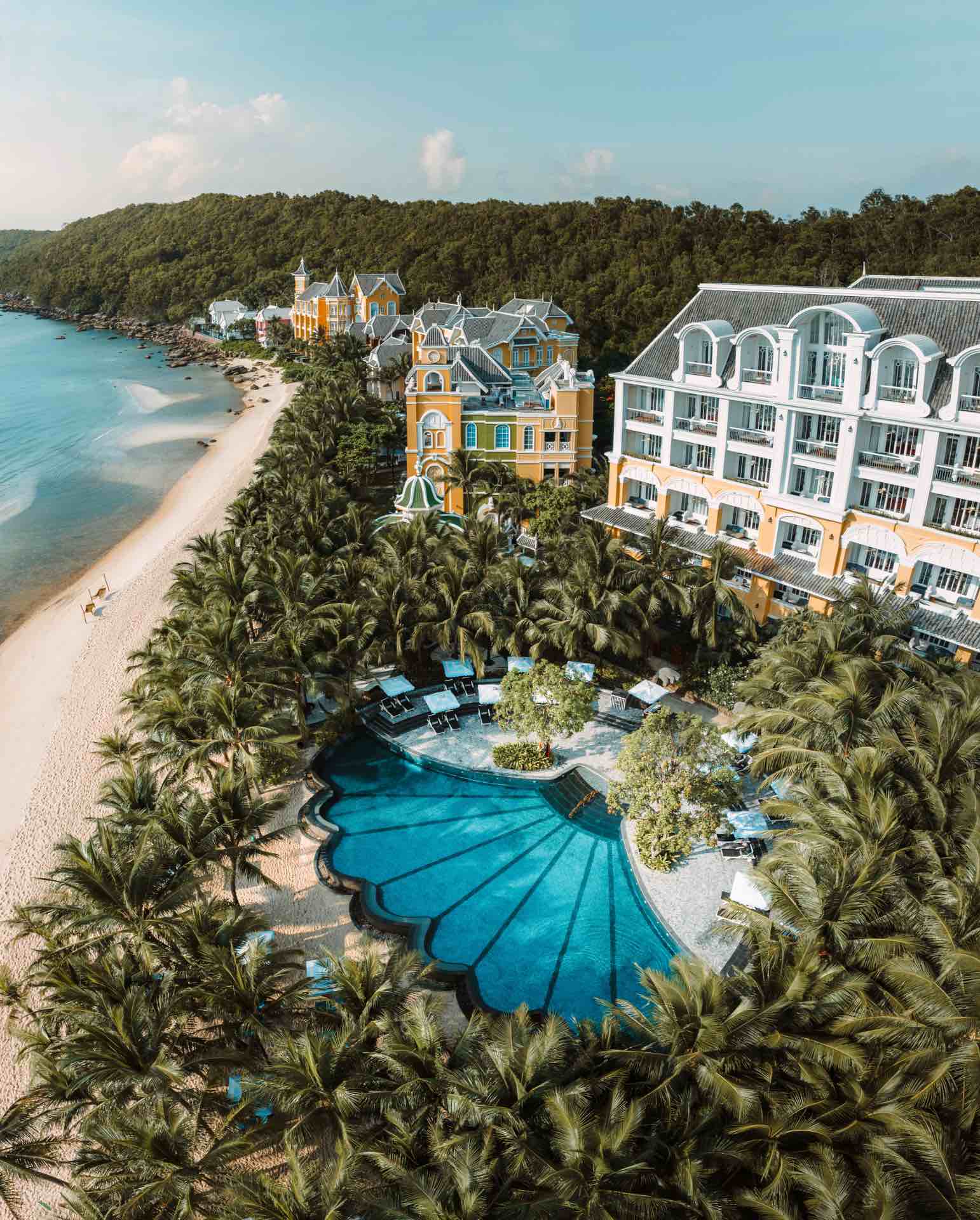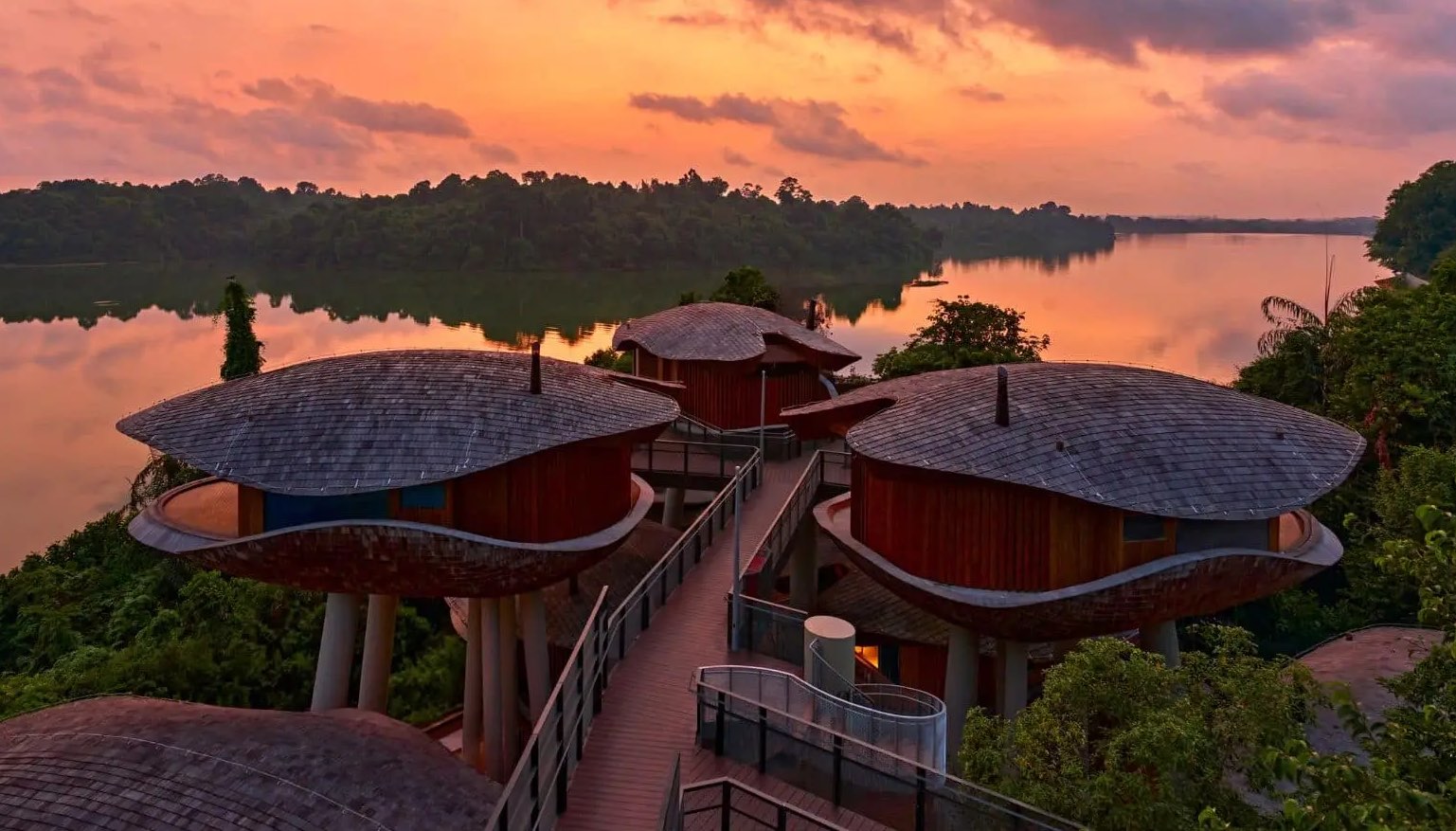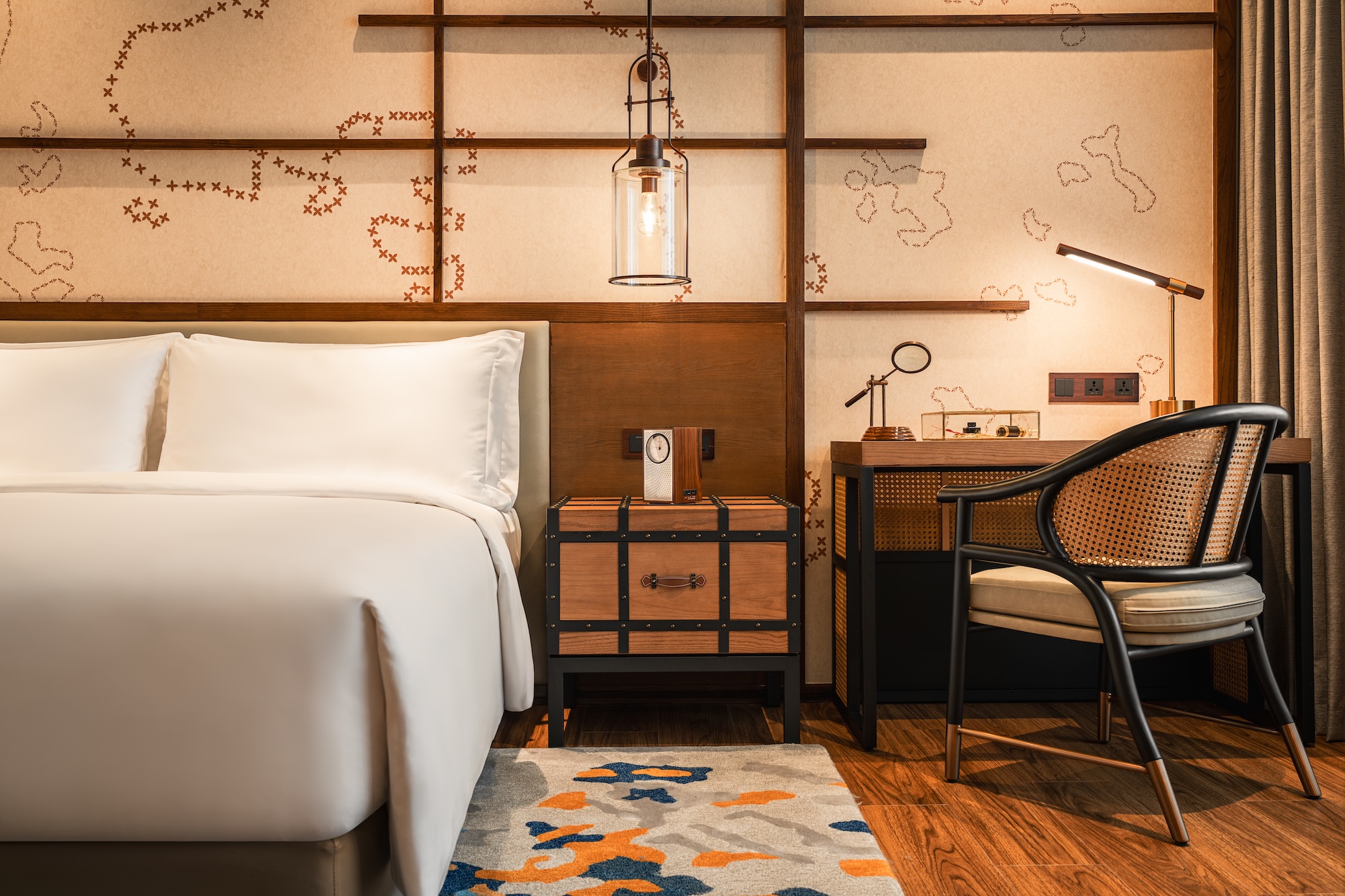It’s no secret that the tourism industry is experiencing one of the hardest hits we’ll probably witness in this lifetime due to the ongoing Covid-19 pandemic.
In Singapore alone, hotels deviated from its usual source of tourism revenue by resorting to creative pivots in order to secure a steadier stream of income during Singapore’s circuit breaker period as international borders remain closed.
When hotels were eventually given the green light to reopen for staycations, many properties leapt at the opportunity to be granted approval, although others continued to draw wages for remaining as dedicated Stay-Home Notice (SHN) venues. Thankfully, the decisions to reopen paid off—hotels across Singapore were readily booked out since.
Hurray for staycays and vacays
In a previous interview with SG Magazine, SUTL Global, which manages the ONE°15 Marina Sentosa Cove divulged that it saw an 80-90 per cent occupancy ever since they received the approval to host staycations. Likewise, The Fullerton Hotels and Resorts said it saw more than 200 bookings on a weekend at The Fullerton Hotel Singapore during the recent school term break in July.
These circumstances, while encouraging, might still seem reason enough for hotels to take a step back to reevaluate their future plans. They may even halt expansion plans.
Yet, large hotel groups with regional bases don’t seem to be slowing down. Instead, they have been expanding rapidly, with some even opening doors amid the pandemic.
One such example is the Southeast Asian debut of Kimpton Hotels and Restaurants, a subsidiary of the InterContinental Hotels Group (IHG) family of hotel brands. Under the group, the new Kimpton Maa-Lai Bangkok opened in October, offering a modern oasis located in Bangkok’s Langsuan area and boasts convenient access to prime districts such as Sukhumvit, Silom, Siam and Chidlom. It also has scenic views of the tranquil Lumphini Park, one of the city’s largest green spaces.
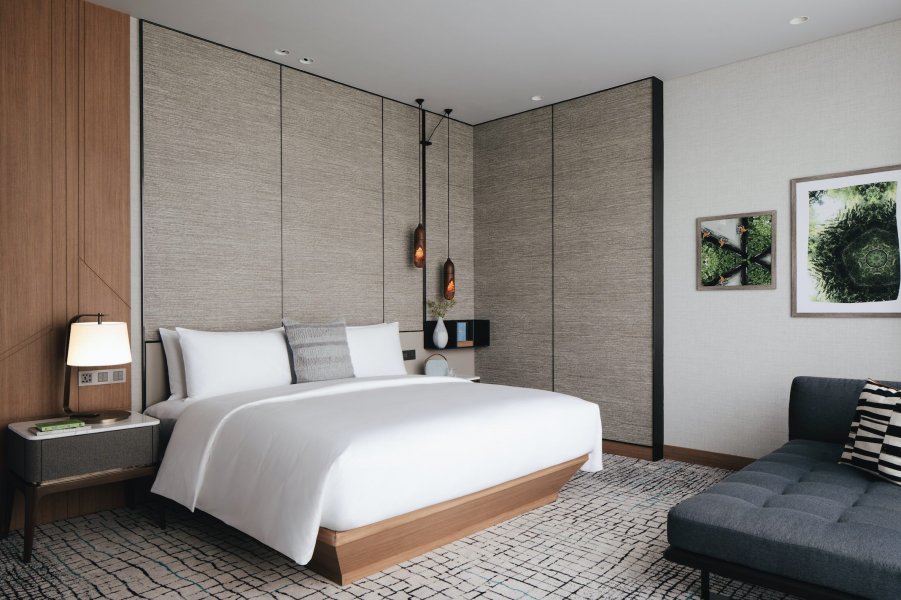
A perfect blend of contemporary design and old world charm, the luxurious boutique hotel is undoubtedly a sight to behold.
“Due to the Covid-19 pandemic, we actually pivoted and launched our restaurants and bars before officially opening our doors in October,” confirms Patrick Both, general manager of Kimpton Maa-Lai Bangkok.
Discussing the hotel’s vision with SG Magazine, Both continues: “We believe domestic business will return first. And while staycations are rather uncommon in Thailand, we have definitely seen an increasing trend for weekend staycations and holidays at home with borders closed. This is also in line with Thailand’s We Travel Together campaign which supports the drive for domestic tourism and the hotel is a part of. Our Pet Staycation, Hello Bangkok offer and The Suite Life package have also been extremely popular with local residents since Kimpton Maa-Lai Bangkok opened on Oct 1.”
Subsequently, Kimpton Maa-Lai Bangkok will seek to attract regional tourists to the hotel, and that includes Singaporeans.
“We also understand the need for maintaining booking flexibility. All our guests will get to enjoy the flexibility of having full cancellations up to one day before their stay with no deposit required with IHG’s flexible app and booking engine. That, plus exciting stay packages to suit the needs of different consumers.”
Adapt and grow
These remarks come completely in-line with the larger IHG Group, as VP Commercial for IHG South East Asia and Korea, Mark Flower, states: “2020 has clearly been a very challenging year, and we cannot underestimate the impact that Covid-19 has had on our industry. At IHG, we’re doing everything we can to emerge from this period in the strongest possible position.”
He emphasises that the safety and well-being of their guests and colleagues are the primary focus. “We have provided guests with booking flexibility through a change to our cancellation policy and Book Now Pay Later offers. We build consumer confidence with our enhanced IHG Way of Clean and IHG Clean Promise, launched in June 2020, for a safe stay, meeting or event at all our hotels,” says Flower.
“We have looked at how we can help and be part of the solution too. One way was for us to bring true hospitality to one another and our communities, caring for each other and playing our part in relief efforts. We took action to support guests, colleagues and hotel owners through this crisis, while still protecting the business for the long-term and positioning it for a recovery. Almost all our hotels are now open and we’re beginning to see a recovery. We’re still opening and signing hotels across our brand portfolio globally; more than 90 opened in the first half of 2020 across the world, with almost one property signed per day.”
As people will always want to explore the world, relax or reconnect with friends and family, the wheels of business must turn and events will need to be run. The future of travel may look different, but a safe secure stay is fundamental, Flower notes.
Trust, great service and strong relationships
Other hotel brands like Accor and Capella Hotel Group cite similar responses.
During the first half of 2020, Accor opened 86 hotels of which around 50 per cent were in Asia Pacific. Towards the end of June 2020, the group had a portfolio of 747,805 rooms and a pipeline of 1200 hotels. Among the 1200 hotels, 75 per cent are in emerging markets and just over 50 per cent in Asia Pacific.
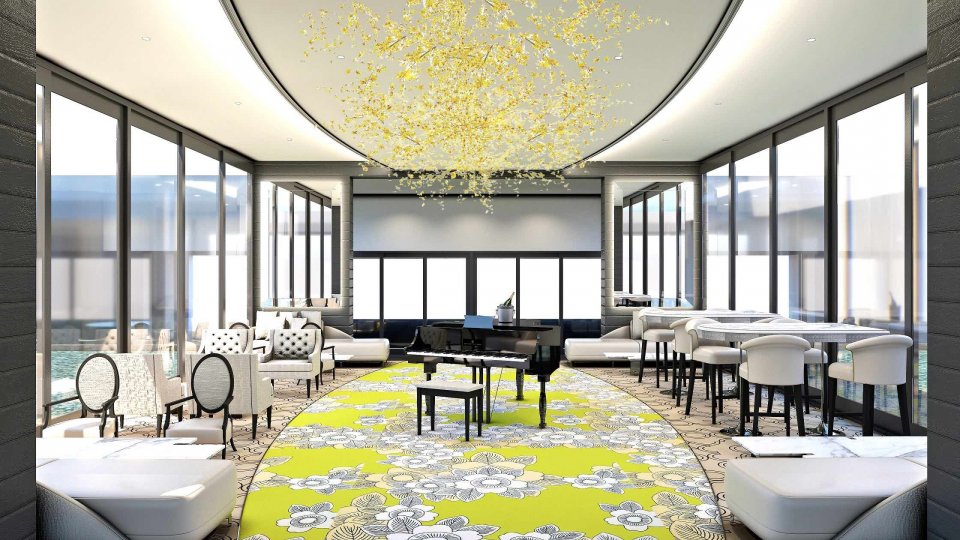
Accor operates over 1200 hotels in Asia Pacific across 21 countries and the development since the pandemic has been stronger than expected, especially in the luxury and lifestyle sectors.
Explains Michael Issenberg, chairman and CEO of Accor Asia Pacific: “We have seen many owners we work with come to us with new projects. Other owners who have either been operating solely or with other hotel groups also come to us during this time because they trust our world-class brands, our reliable distribution platforms, strong record of owner relations and our ability to outperform the market.”
“One of the things we have always focused on at Accor is the regional teams on the ground who know and understand the local markets and can build strong relationships with owners and partners. We are pleased that owners and investors have confidence in the long-term future of the industry and we know that tourism and hospitality are very resilient.”
Sofitel Auckland Viaduct Harbour will reopen in spring after an extensive makeover that embraces its French luxury roots with contemporary elegance. Overlooking Waitemata Harbour, the hotel has welcomed high profile celebrities, politicians and guests since 2012 and its makeover is a testament to its commitment to uncompromising service. The refurbishment of all facets of Sofitel Auckland Viaduct Harbour, including lobby, reception, bar, cafe, restaurant and Sofitel Spa is currently underway.
Similarly Capella Bangkok has opened its doors to local residents earlier in October and already saw reservations ahead of its debut. The highly anticipated property resides along the Chao Phraya River and Charoenkrung Road, playing a significant role in the rebirth of the Charoenkrung district.
“We are very excited to welcome the world to Capella Bangkok and Charoenkrung, an enchanting riverside enclave from a bygone era,” says John Blanco, general manager of Capella Bangkok.
“In this setting, the curious can enjoy encounters that echo the past while being anchored in the present. We want to encourage learning and exploration, give back to the community and create emotional connections that stay with guests long after they check out.”
So whether you’re looking to book a staycation or anxiously awaiting another travel bubble, know that the options to explore are burgeoning, despite these tough times. And as we wait, a speedy recovery for the tourism sector is well underway thanks to the resilience of the industry and global support.


